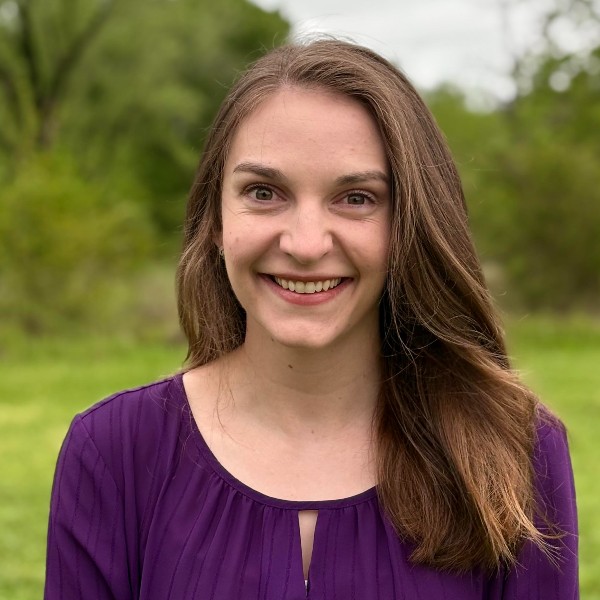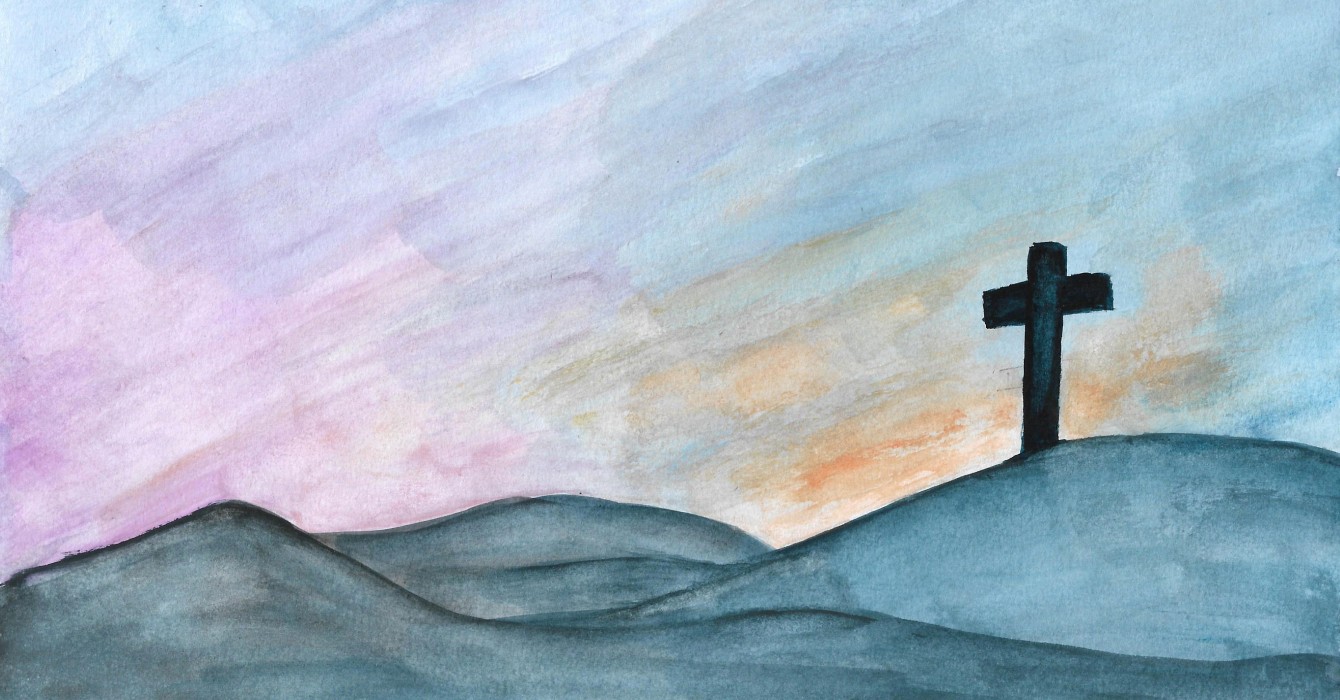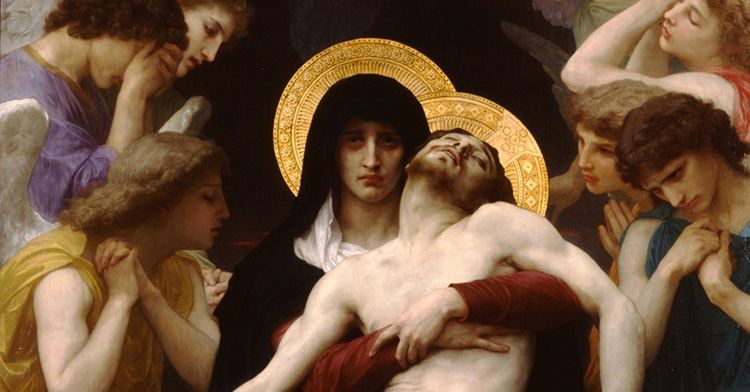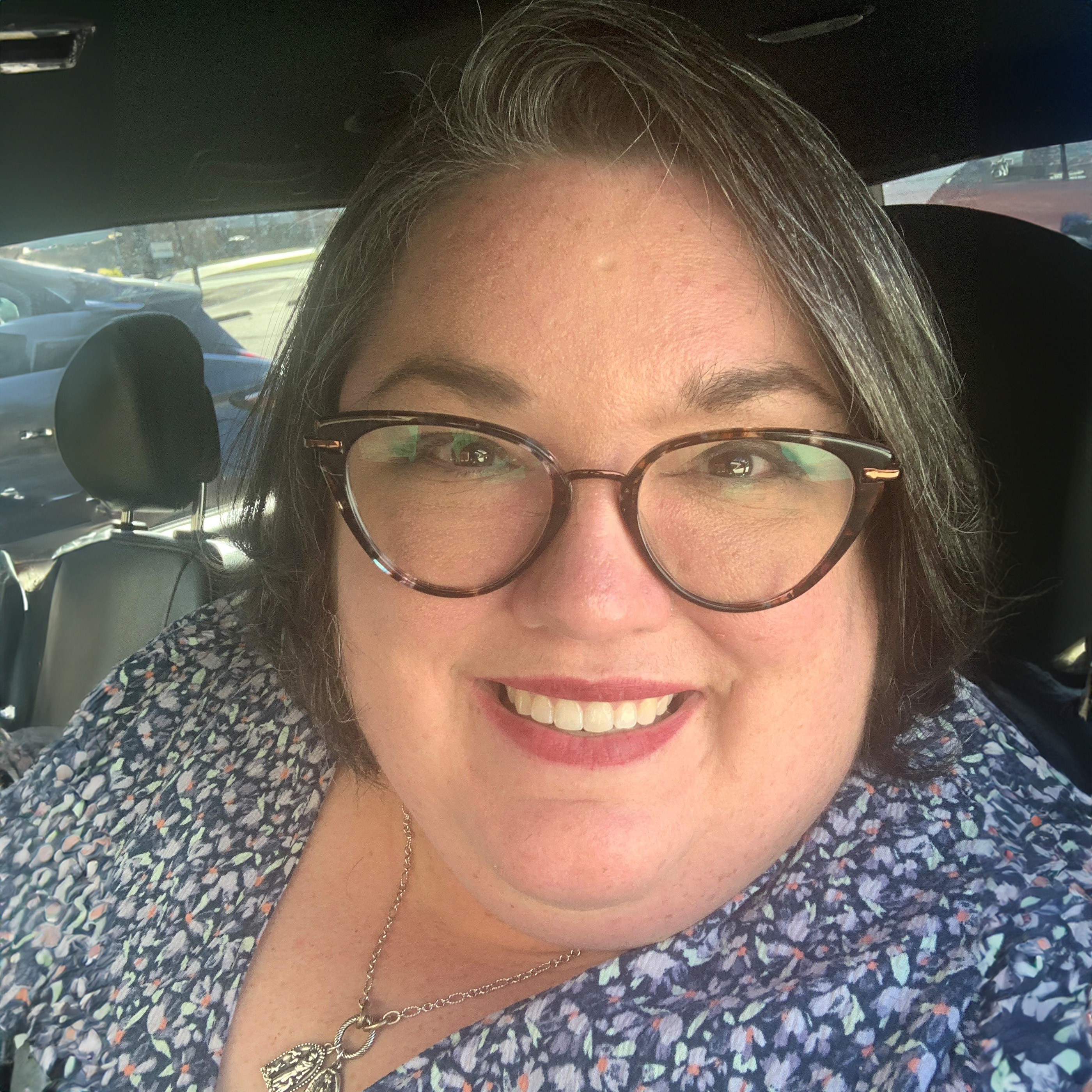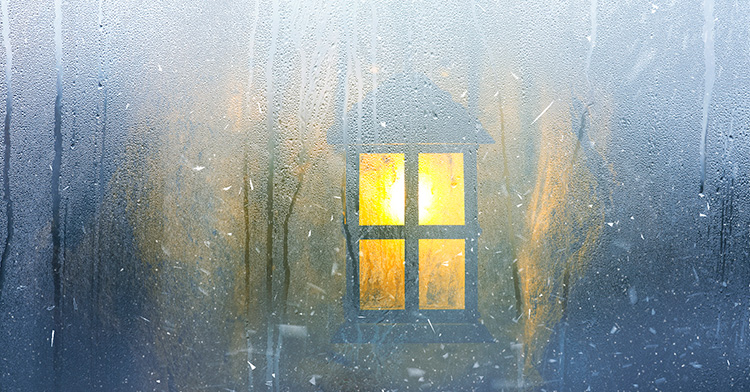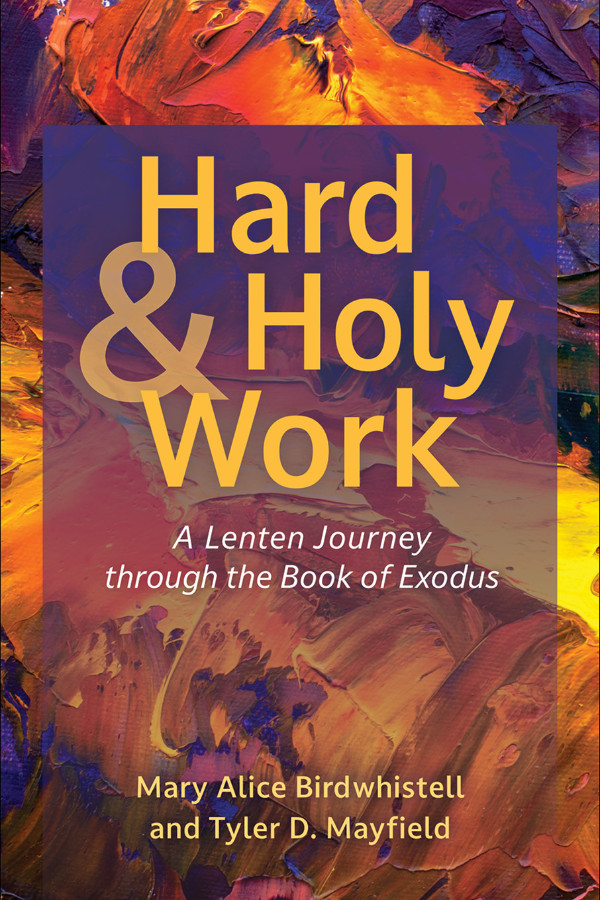My mother and my cat both died during Lent, she four years ago, he last month, which has me thinking about death and the meaning of a life. My mother would be appalled to know I’m writing about her death alongside the death of my cat, Pinky. I’d say she’s turning over in her grave, but she is dust, her ashes absorbed in the soil of the Baptist camp where she met my father, on a hill overlooking a creek, near the farm where she grew up.
Growing up on a farm did not make her an animal lover since the animals there worked, serving the purposes of the farm. The feral cats caught mice and snakes in the barn, and the only time they came near us was to feast on the leftovers from fried chicken dinners with mashed potatoes and cream gravy that my grandmother set out in a metal pan.
Still, who knows? Maybe they had better cat lives than my coddled yellow tom who spent much of his life whining for food dropped during cooking or meals, or to be let in or out 50 times a day. Regardless, those feral cats were not beloved, except by God; no one named them or laughed at their quirks and foibles or worried whether they lived or died. Perhaps it’s that love that gives a life and a death meaning.
Pinky was on our front porch with his stray mother and littermates one August day when we got home from Galveston. I looked down at those kittens and said, “Well, there’s Pinky Junior,” because he looked exactly like my previous cat, Pinky, who then became known as Pinky Senior. At Christmastime I would sing “Sweet Little Pinky Boy” to Pinky Junior in the most obnoxious voice I could muster -- “born, born on our front porch, sweeeeet little Pinky Boy; we didn’t know who you was,” and he would look at me with aggravation and disgust.
He was the antithesis of the aloof cat, following me around like a puppy dog and living much of his life in my lap, unless in winter he could get closer to the fire by lying on the edge of the rug. On the back porch, as an old man too lazy to hunt, he'd spot the mockingbirds that came too close and make a high-pitched half-growl, half-meow as if to say, “Don’t make me come after you.”
My mother was not completely hard-hearted about animals. When we kids were young, we had one dog, an adorable Collie-Shepherd mix named Spice. We got her as a puppy. Mom wouldn’t hear of a dog in the house, but the first morning she went out to check on the new pup, Spice cocked her head, pricked up her ears and looked so cute that Mom fixed her a pan of oatmeal.
Later, when we’d all gone off to college, my parents inherited Muppet, your basic little black dog. Muppet enjoyed eating the ice that fell on the floor from the ice maker (somehow, the rule about dogs inside had been relaxed by then). For the rest of her life, even long after Muppet had died, whenever ice from the ice maker fell on the floor, Mom would say, “Where’s Muppet?”
These stories of what is unique and individual in a life seem to have something to do with what persists in us, human or animal. It is not only that we live on as long as the stories do but that, through love, we make our mark in the world, put our stamp on the universe.
Perhaps this is what remains in our resurrection bodies. My mother’s glorious soprano voice sings on in heaven, of course -- her renditions of “Gesu Bambino” and “I Know That My Redeemer Liveth” are the definitive versions for me -- but it is also her voice over the phone that persists for me these days.
When our girls were young, my husband’s parents were visiting and we all came down with the flu. For Kyle’s dad, it turned into pneumonia; because they had no health insurance (no recovery from the oil bust in Texas), we tried to nurse him at home with breathing treatments and pounding on his back. He had just thrown up on the dining room floor, and I had just cleaned it up, when my mother called.
I told her all about trying to take care of everyone else when I was staggering around sick myself. She said, “Oh, honey ...” in a way that expressed all of a mother’s love in two words:
Oh, honey, this is not fair;
Oh, honey, if I could take this away from you, I would;
Oh, honey, I would bear your burdens if I could;
Oh, honey, I am with you.
Later, cancer and dementia would claim her, but that love persists. In one of her last lucid conversations with us, my sister and I got to talking about Spice’s puppies, telling stories and laughing, and Mom laughed along with us, remembering.
“O death, where is thy sting?” (1 Corinthians 15:55 KJV).
It is at the vet’s when he sees Pinky’s labored breathing, hears his racing heart and says, “There’s really not much we can do.” It is in the sound of Pinky’s yowling when they take him back to give him a sedative, in the smell of the alcohol they rub on his leg before the injection that ends his life. It is in seeing movement on the porch and realizing once again that he is not with us.
It is in hearing my mother’s labored breathing that becomes a death rattle (and makes you think, “Oh yes, this is a real thing”). It is in the mottling on her legs that the hospice nurse checks to judge how close we’re getting to the end.
When she died, I had stepped outside for some air and saw that, on this blustery March night in Lent, the clouds too looked mottled -- as though the universe were conspiring in this.
The main thing these two deaths had in common was the reminder that, as Susan Sontag put it, “death is the obscene mystery, the ultimate affront.” As much as we may want to believe that death is a natural part of life, when it comes, we are shocked and appalled -- affronted.
Elisabeth Kubler-Ross was on to something. Before my mother’s cremation, we had a chance to see her body, lying on a gurney draped with a beautiful brocade cloth. They had made her up, done her hair and tied a jaunty scarf around her neck to make her look more like her old self. Even so, I could see that her ear was turning gray, like a bad spot on a piece of fruit.
Surely, this could not be right. I was affronted.
But the universe was also conspiring to bring us beauty and hope and love. As my sister and I drove to the nursing home after the phone call that said they thought she was close to the end, the late afternoon sky filled with sunbeams. Hospice brought coffee, tea and cookies for us and our dad as we kept vigil, a reminder of the importance of the smallest acts of love and kindness.
When the sweet, handsome nurse said, “Carolyn, honey, I’m going to give you something to make you more comfortable,” my sister and I looked at each other, and our eyes filled with tears at his tenderness. Much later, after we had kissed our mother goodbye and were driving away, I looked back at that low building and thought of all the armies of helpers laboring through the night, easing the dying through the hard work of being born into the next life.
As Frederick Buechner’s character Godric said, “What’s lost is nothing to what’s found, and all the death that ever was, set next to life, would scarcely fill a cup.”
As I end this, it is Eastertide. The tide still flows in with the flotsam and jetsam of grief and longing. I can’t go all the way with Paul and say that death has lost its sting. But I trust that the tide also flows out into the vast ocean of resurrection life, beside which death is a teacup on the sand.



